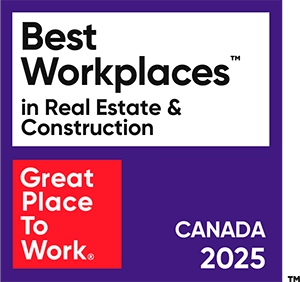We work in a tough industry. Construction is fast-paced, physically demanding, and constantly evolving. But through it all, we’ve held tight to one belief: how we work together matters just as much as what we build.
If you're thinking about starting a new project we'd love to hear from you. We can add more value if we're brought in early.

Whether you're a seasoned expert or developing a new career, or just want learn more about the company, drop us a line.

We're lucky enough to be partnered up with some of BC's finest. We'd love to discuss the potential of working together.


Project State
Made Constructible
Design-Bid-Build
Trade Services
Institutional
In Progress
Prefabrication
Type
Design Assist
Special projects
Warranty Services
Commercial
Processes
Design Build
Residential
VDC - Virtual Design and Construction (BIM)
IPD
Uncategorized
Residential / Mixed Use
HVAC-R
Services
Commercial Plumbing
Forecasting the Future: True Mechanical’s AI-Driven Innovation in Construction
In this article, Rafal Choroba, Co-Founder and Principal at True Mechanical discusses exciting new developments involving AI innovation in forecasting. He posits that by sharing knowledge and daring to innovate, we can transform the construction industry from the inside out.
The Role of AI in Mechanical Design
In this article, Andrii Pushchinskyi – a VDC Designer at True Mechanical looks at the practical use cases for AI that he has encountered to date. Andrii believes isn’t replacing VDC designers – it’s empowering them. It’s giving us new ways to solve old problems, speed up repetitive workflows, and bring more clarity into complex coordination processes.
Essential Guide to Mechanical Contracting.
When you think about the infrastructure of a building—its heating, cooling, plumbing, and ventilation—you’re thinking about the work of mechanical contractors. These unsung heroes of the construction industry ensure that buildings function efficiently and comfortably. But what exactly does a mechanical contractor do? How does one become a mechanical contractor, and what makes a great one?
The BC Energy Step Code
Unlike traditional building codes, which focus on prescriptive measures, the BC Energy Step Code sets clear performance-based targets, requiring builders to meet specific energy efficiency standards. By 2032, the province aims to ensure all new buildings are net-zero energy-ready, meaning they are highly energy-efficient and capable of meeting their energy needs with renewable sources.
Understanding Variable Refrigerant Flow (VRF) Systems
Variable Refrigerant Flow (VRF) systems are rapidly gaining popularity in North America’s commercial HVAC market due to their energy efficiency, flexibility, and ability to provide precise temperature control. As building owners seek sustainable solutions and lower operational costs, VRF systems have emerged as a leading technology trend.
Supporting Life-Changing Projects in Ecuador
we’re thrilled to announce our partnership with WE Charity, an internationally recognized organization dedicated to empowering communities worldwide. WE Charity, the charitable arm of the WE movement, is a pioneer in sustainable community development.
Trends and Challenges in Canadian HVACR
The HVAC/R industry in Canada faces a transformative period, shaped by shifts in regulations, rising environmental standards, and a growing demand for sustainable practices. As BC’s construction industry continues to evolve, HVAC/R companies are adapting to meet changing market needs.
Commercial HVAC Systems for BC’s Climate.
British Columbia experiences a wide range of temperatures and weather conditions. Coastal areas like Vancouver enjoy mild, wet winters, while interior regions like Kamloops can experience much colder temperatures. This variance means that a one-size-fits-all approach to HVAC systems won’t suffice.





